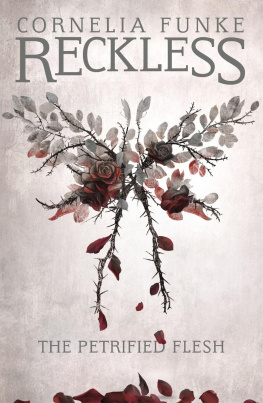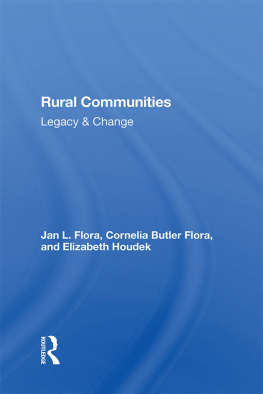Cornelia Flora - Rural Policies For The 1990s
Here you can read online Cornelia Flora - Rural Policies For The 1990s full text of the book (entire story) in english for free. Download pdf and epub, get meaning, cover and reviews about this ebook. year: 2019, publisher: Taylor & Francis Group, genre: Politics. Description of the work, (preface) as well as reviews are available. Best literature library LitArk.com created for fans of good reading and offers a wide selection of genres:
Romance novel
Science fiction
Adventure
Detective
Science
History
Home and family
Prose
Art
Politics
Computer
Non-fiction
Religion
Business
Children
Humor
Choose a favorite category and find really read worthwhile books. Enjoy immersion in the world of imagination, feel the emotions of the characters or learn something new for yourself, make an fascinating discovery.

- Book:Rural Policies For The 1990s
- Author:
- Publisher:Taylor & Francis Group
- Genre:
- Year:2019
- Rating:5 / 5
- Favourites:Add to favourites
- Your mark:
- 100
- 1
- 2
- 3
- 4
- 5
Rural Policies For The 1990s: summary, description and annotation
We offer to read an annotation, description, summary or preface (depends on what the author of the book "Rural Policies For The 1990s" wrote himself). If you haven't found the necessary information about the book — write in the comments, we will try to find it.
Rural Policies For The 1990s — read online for free the complete book (whole text) full work
Below is the text of the book, divided by pages. System saving the place of the last page read, allows you to conveniently read the book "Rural Policies For The 1990s" online for free, without having to search again every time where you left off. Put a bookmark, and you can go to the page where you finished reading at any time.
Font size:
Interval:
Bookmark:

of the
Rural Sociological Society
Lorna Butler, Washington State University
William D. Clifford, North Carolina State University
Forrest A. Deseran, Louisiana State University
Donald R. Field, University of Wisconsin-Madison
Linda Lobao, Ohio State University
Cornelia B. Flora
Virginia Polytechnic Institute and State University
and
James A. Christenson
University of Arizona

52 Vanderbilt Avenue, New York, NY 10017
2 Park Square, Milton Park, Abingdon, Oxon OX14 4RN
Product or corporate names may be trademarks or registered trademarks, and are used only for identification and explanation without intent to infringe.
Rural policies for the 1990s / edited by Cornelia B. Flora and James
A. Christenson.
p. cm. (Rural studies series of the Rural Sociological
Society)
Includes bibliographical references and index.
ISBN 0-8133-7815-X ISBN 0-8133-7816-8 (pbk.)
1. Rural developmentGovernment policyUnited States. 2. United
StatesRural conditions. 3. United StatesSocial
conditions1980- . I. Flora, Cornelia Butler, 1943
II. Christenson, James A., 1944- . III. Series.
HN90.C6R815 1991
307.72'0973dc20 90-22323
CIP
- iii
Chair, Editorial Board
Rural Studies Series
The Rural Sociological Society
Critical Times for Rural America: The Challenge for Rural Policy in the 1990s
Font size:
Interval:
Bookmark:
Similar books «Rural Policies For The 1990s»
Look at similar books to Rural Policies For The 1990s. We have selected literature similar in name and meaning in the hope of providing readers with more options to find new, interesting, not yet read works.
Discussion, reviews of the book Rural Policies For The 1990s and just readers' own opinions. Leave your comments, write what you think about the work, its meaning or the main characters. Specify what exactly you liked and what you didn't like, and why you think so.







